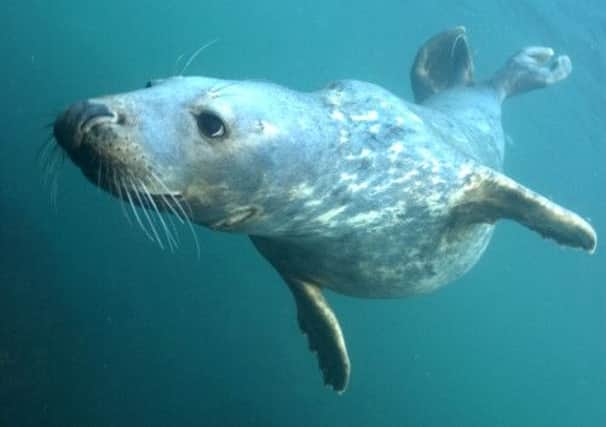Ex-Shetland salmon farm chief fined over seal nets


Graham McNally, 52, of Sandveien, Lerwick, was fined £800 at Lerwick Sheriff Court today after he admitted using prohibited non-selective nets for the purposes of taking or killing common and grey seals, contrary to the Conservation (Natural Habitats) Regulations 1994.
The offences took place between 16 March 2011 and 1 August 2011 while McNally was working as regional fish farm manager at Meridian Salmon Farm, Cloudin Site, Vaila Sound on Shetland.
Advertisement
Hide AdAdvertisement
Hide AdHe was arrested after a raid by police and investigators from the animal welfare charity Scottish SPCA on the salmon farm in the summer of 2011.The investigators found green “curtain” nets dangling from walkways around two out of 12 cages at the site in Vaila Sound, off Shetland’s west mainland.
Mike Flynn, the SSPCA’s Chief Superintendant, said after the hearing: “We welcome today’s conviction, which is a landmark for seal conservation in Scotland and the UK. Common seal numbers are decreasing and the illegal trapping and killing of seals is contributing to their decline.”
He added: “This case highlights that we will work tirelessly to pursue anyone involved in wildlife crime. We urge members of the public to contact our animal helpline on 03000 999 999 if they have any concerns in relation to the illegal killing of seals in and around Scottish waters. All information is treated in strict confidence and can be provided anonymously.”
Earlier defence agent Martin Sinclair told the court that no seals or other wildlife had been killed by the nets while they were deployed.
Mr Sinclair argued that only 13 per cent of the salmon industry used tensioned anti-predator nets because they were ineffective and risked harming other forms of wildlife.He insisted that the curtain nets had only been deployed after seals had attacked the salmon cages and put the fish off their feed.
He said: “The analogy I would use is that of netting strawberries to frighten away birds.”
But Procurator Fiscal Tom Dysart, of the Crown Office’s recently formed wildlife and environment unit, said that salmon workers had refused to deploy the nets because of the threat to wildlife. He told the court: “Although the accused maintained when interviewed that the two nets were simply predator nets, several employees at the site were clear that their purpose was to catch seals and they themselves refused to deploy or check the nets due to their awareness of the risks to wildlife.”
Sheriff Philip Mann said he did not believe McNally had “deliberately targeted seals” and that his motive was to protect the welfare of the fish he was responsible for.“Also significant is that fact that no seals or other wildlife were apparently damaged by the deployment of these nets,” he said.
Advertisement
Hide AdAdvertisement
Hide AdHad the nets been properly tensioned as McNally had intended, there would have been no crime.
Fining him, the Sheriff said: “In approaching sentence I am concerned not so much with punishment for what’s been done, but by sending a message by way of deterrent.”